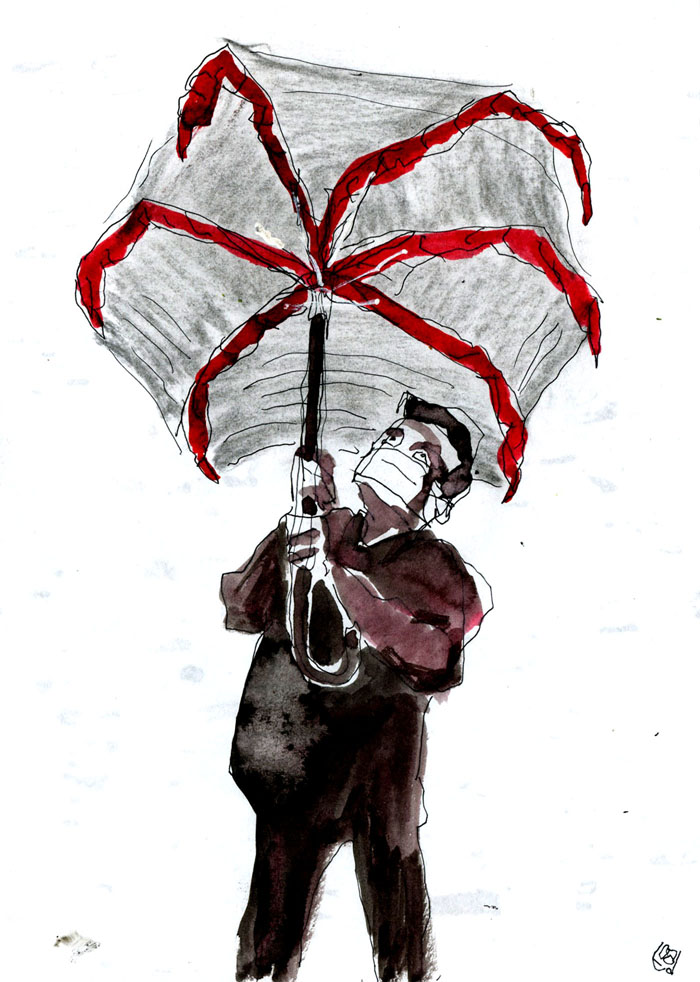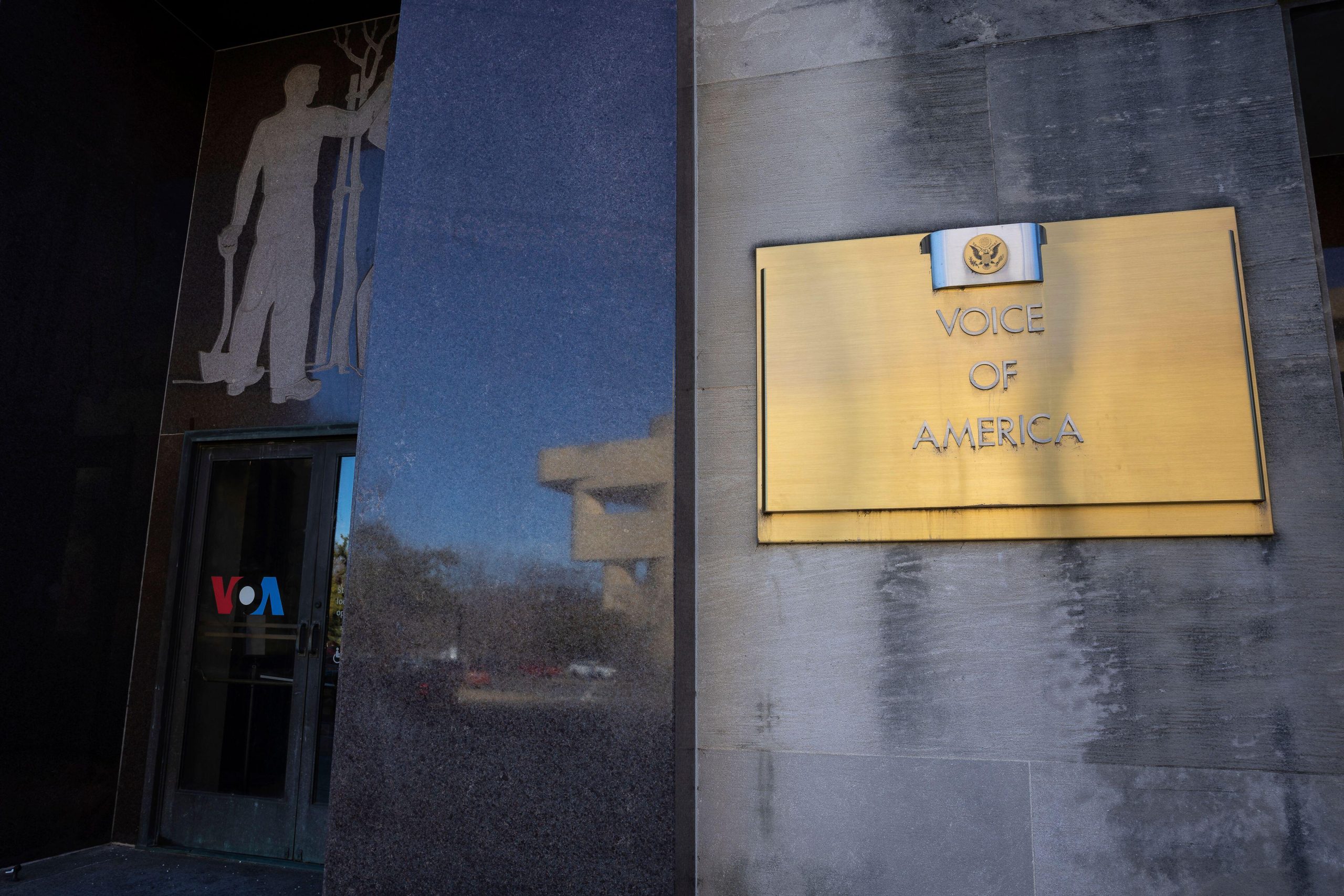[vc_row][vc_column][vc_column_text]

Illustration from cartoonist tOad published today in response to the new law. twitter.com/t0adscroak, www.unsitesurinternet.fr
The National Security Law passed on 30 June in Hong Kong has dealt a massive blow to the city’s status as an autonomous region into which the Chinese government’s suppression of freedom of expression doesn’t encroach. The new law will criminalise “any act of secession, subversion of the central government, terrorism or collusion with foreign or external forces”.
Language like this, as those on the mainland may have experienced, could be manipulated to apply to any behaviour the Chinese government doesn’t like, leaving journalists, activists, protesters and campaigners at risk. Activists in Hong Kong have already begun to shut down their operations out of fear of reprisal in the wake of the law.
Since 1997, when Hong Kong was handed back to China having previously been a British colony, Hongkongers have enjoyed freedom of expression, including a flourishing free press, under the “one country, two systems” constitutional principle. As this principle begins to crumble, we look back at pieces published in Index magazine in 1997 which explored the implications of the handover and the future relationship between mainland China and Hong Kong.
Remade in Hong Kong
In this edited version of the speech given by Professor Helen Fung-Har Siu in Hong Kong in 1996, she explored the national identity of Hong Kongers and how it intersected with the oppressive nature of the Chinese authorities. In the years preceding the 1997 handover, the people of Hong Kong enjoyed freedom of expression; Siu noted that one in six people there marched in protest at the 1989 Tiananmen Square Massacre. Dissecting the socioeconomic developments in Hong Kong through the 1970s and 80s, Siu questioned how the region and its people, who are accustomed to independence from China, would adapt to its new relationship with the People’s Republic.
Hong Kong the floating city
Published in early 1997 in anticipation of the handover, Geremie R Barmé, author of Shades of Mao: The Posthumous Cult of the Great Leader, wrote on the flow of popular culture from Hong Kong and Taiwan to mainland China through the 1980s. He explored how the lure of Beijing’s culture waned through the 70s, leading people to soak up the film and music coming from the south, despite attempts by the authorities to censor it. Hong Kong, independent from the Chinese authorities, acted as a conduit between the people in mainland China and Taiwan, and indeed the rest of the world. Barmé predicted that, as Hong Kong returned to China, the subsection of society supporting communist ideals would be brought to the fore by the mainland.
He wrote: “The patriotic significance of Hong Kong’s return to the mainland is lost on no-one. It is part of the final process of what the Communist authorities, and many people in China, see as the reunification of a divided nation.”
Citizen of the floating world
Ma Jian, an artist who left Beijing for Hong Kong in 1990, shared his feelings of liberation as he crossed the border and reflects on the suppression of his art on the mainland. Demanding rights and freedom from the Chinese authorities was, he wrote “like being on a battlefield”. Jian wrote that he would remain in Hong Kong after the handover, but projected a lack of optimism about his future freedoms.
“As we watch, incredulously, pre-ordained history advances, or rather, steps backwards to meet us,” he wrote. “No-one asks whether we accept the past, whether we can go and live the time we have already lived. It is as though, studying at middle school, we are suddenly sent back to kindergarten.”
Kingdom of the middlemen
In July 1998, Edward Lucie-Smith visited Hong Kong to find out how the city was acclimatising to the handover one year on. Finding local people unwilling to discuss at length the direction freedom of speech had taken, Lucie-Smith looked to global economic developments and how they could impact Hong Kong’s political future, and in turn the future of freedom of expression. Hong Kong faced an economic downturn in 1998, along with other so-called ‘tiger-economies’, meaning the Hong Kong Chinese elite, who were middlemen between the democratic forces in Hong Kong and the Chinese authorities, may have chosen to move to other parts of the world, leaving Hong Kong and its people more at risk of being ideologically swallowed up by the mainland.
He wrote: “The general feeling was that the British were handing over an economic jewel – a financial mechanism so successful and so finely tuned that the mainland Chinese government would be foolish to interfere with its functioning. But would it be able to resist tinkering, on ideological grounds, with the ‘special economic zone’ within China that Hong Kong was now to become?”
The way we live now
Published in January 1997, Jonathan Mirsky, then East Asia editor of The Times, wrote on how freedom of expression began to crumble in Hong Kong in anticipation of the handover. He described how news channels reported on China in a “vapid or grovelling” manner, to avoid attempts at censorship by Chinese representatives in Hong Kong.
Outspoken democratic politicians told Mirsky how their colleagues no longer wanted to be associated with them. Organisations were expected to plan celebrations for the handover, and comply. Mirsky predicted a dismal future for Hong Kong where loyalty to the Party would be an overriding expectation.
Breathing space
Charles Goddard, at the time of writing a member of the Hong Kong Journalists Association, discussed Hong Kong’s position as eyes on China for the rest of the world, where issues such as human rights abuses in mainland China could be discussed and dissidents from the Chinese authorities could find a relatively safe haven. Goddard, however, highlighted the dangers to journalists in Hong Kong reporting negatively about China, predicting that the status of the city as a place where freedom of expression could flourish would only diminish.
Ever the optimist
Liu Dawen, at the time of writing the editor of Front Line magazine, took an optimistic view of Hong Kong’s future, believing that the spirit of democracy would not wane.
“In the longer term, the Party cannot stem the ‘raging tide’ of democracy indefinitely either in Hong Kong or in the People’s Republic. When things reach a certain pitch, the pendulum must swing back in the opposite direction,” he wrote.
Tea and no sympathy
Charting the arrests and imprisonments of Chinese journalists, Asia-Pacific researcher for Reporters San Frontieres Barbara Vital-Durand painted a picture of China as a country which cracked down harshly on outspoken dissidents from the party line. She foreshadowed a world in which, post-handover, Chinese authorities would extend the jaws of censorship to crush Hong Kong journalists, and access to the internet on the mainland would be tightly controlled.
“Journalists’ organisations and free speech groups have been unsuccessful in getting the British authorities – or subsequently China’s Preparatory Working Committee (PWC) – to abolish several legislative measures which, if left in place, will provide the Chinese authorities with some powerful weapons to use against the media,” she wrote.[/vc_column_text][/vc_column][/vc_row][vc_row][vc_column][vc_basic_grid post_type=”post” max_items=”3″ grid_id=”vc_gid:1593615252756-723f64f2-cdee-10″][/vc_column][/vc_row]




